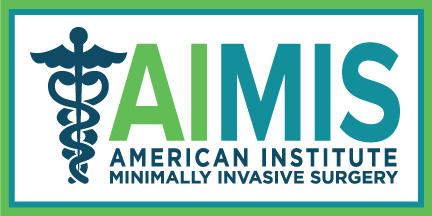Are Traditional Surgical Societies Still the Best Source of Modern Education for Surgeons?
- Christopher Guinn

- Jun 4
- 2 min read

By Christopher A. Guinn, CEO of AIMIS
For decades, organizations like AAGL, SAGES, and ASMBS have been foundational in surgicaleducation, advocacy, and innovation. These esteemed societies have united specialistsunder a common goal: to enhance surgical care and mentor the next generation. Theirannual conferences, scholarly journals, and clinical guidelines have undeniably propelledthe field forward.
However, in today’s rapidly evolving surgical landscape—marked by swift technologicaladvancements, value-based care models, and heightened expectations from both patientsand providers—surgeons are prompted to consider:Is traditional society-based education sufficient?
Bridging the Gap Between Innovation and Education
Emerging technologies—ranging from robotic surgical platforms and advanced energydevices to AI-assisted diagnostics and non-opioid pain management strategies—aretransforming surgical practice. Yet, there’s often a delay in integrating these innovationsinto conventional educational curricula. Even prominent society meetings may struggle tooffer hands-on experiences or adapt swiftly to the training needs of a dynamic field.
Concurrently, healthcare systems are seeking clinicians who transcend the role of mereoperators. Today’s surgeon is anticipated to be a proceduralist, a technologist, a patientadvocate, and a cost-aware decision-maker. This multifaceted role necessitates aneducational model that extends beyond technical prowess.
Embracing a Contemporary, Holistic Approach
Enter AIMIS (The American Institute of Minimally Invasive Surgery)—an organizationdesigned to address the evolving needs of modern surgical practitioners. Unlike traditionalsocieties that may adhere to conventional models, AIMIS focuses on a comprehensiveunderstanding of the surgical journey:– Evaluating the cost-effectiveness of new energy devices compared to established ones.– Implementing non-opioid pain solutions that can reduce hospital stays and enhancepatient satisfaction.– Interpreting data on enhanced recovery pathways or prehabilitation, particularly inwomen’s surgery.
AIMIS offers education through immersive training events, technology showcases, and amulti-specialty faculty that transcends traditional disciplinary boundaries—encompassinggynecology, general surgery, pain management, nursing, and more. This approach fosters aholistic view of the patient experience, encompassing preoperative preparation, surgicalintervention, and postoperative care.
Integrating Tradition with Innovation
This perspective doesn’t diminish the value of traditional societies—they remain vital inupholding research integrity, safety standards, and professional communities. However, it’sessential to recognize that surgeons benefit from multiple layers of ongoing education, eachoffering unique strengths. For instance, a society journal might publish a RandomizedControlled Trial (RCT)—a study where participants are randomly assigned to differenttreatment groups to objectively assess the effectiveness of medical interventions.Subsequently, an AIMIS event could provide the platform to apply that evidence in practice,utilizing the technology in a live setting under the guidance of expert faculty.The future of surgical education lies in layering innovation atop tradition, cultivating moredynamic, timely, and patient-centered educational models.








Comentarios